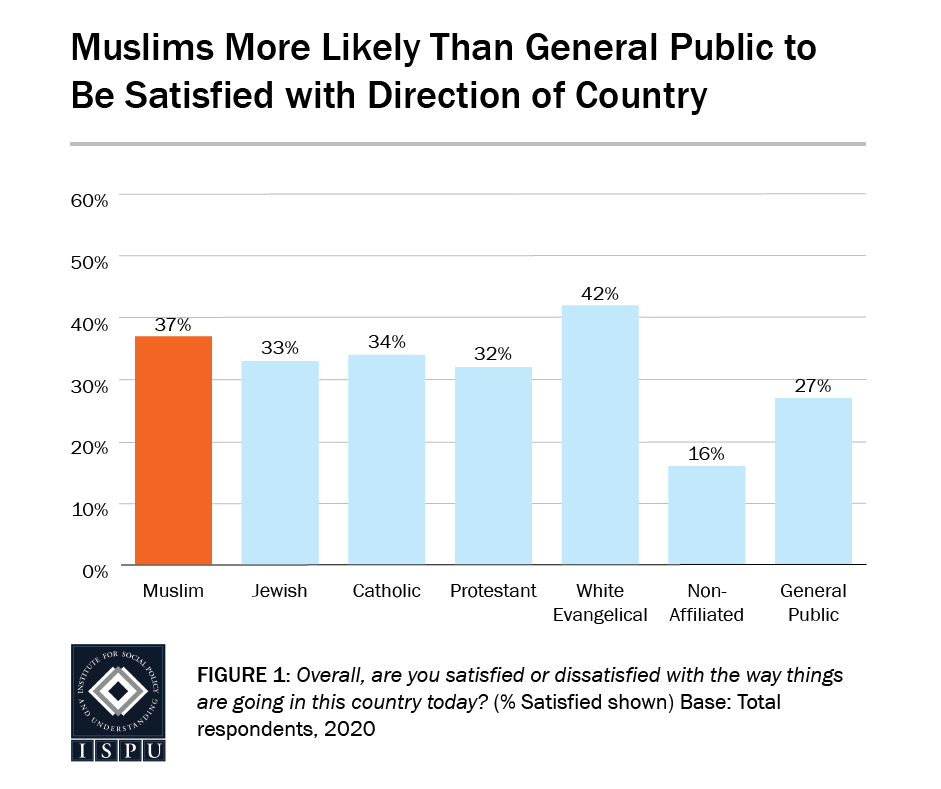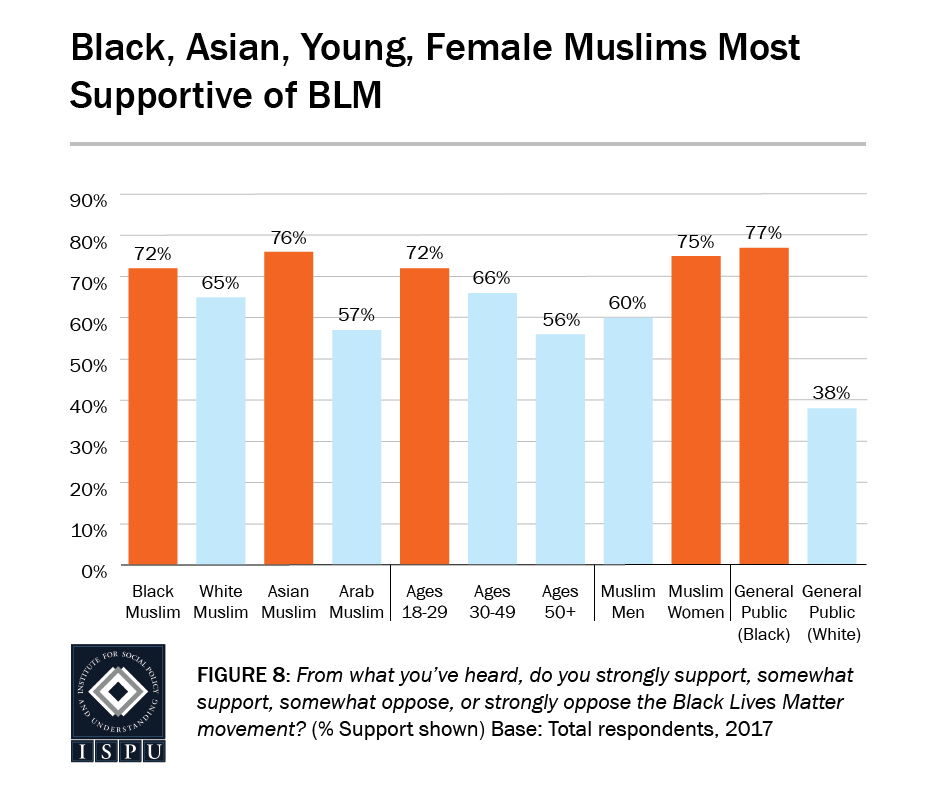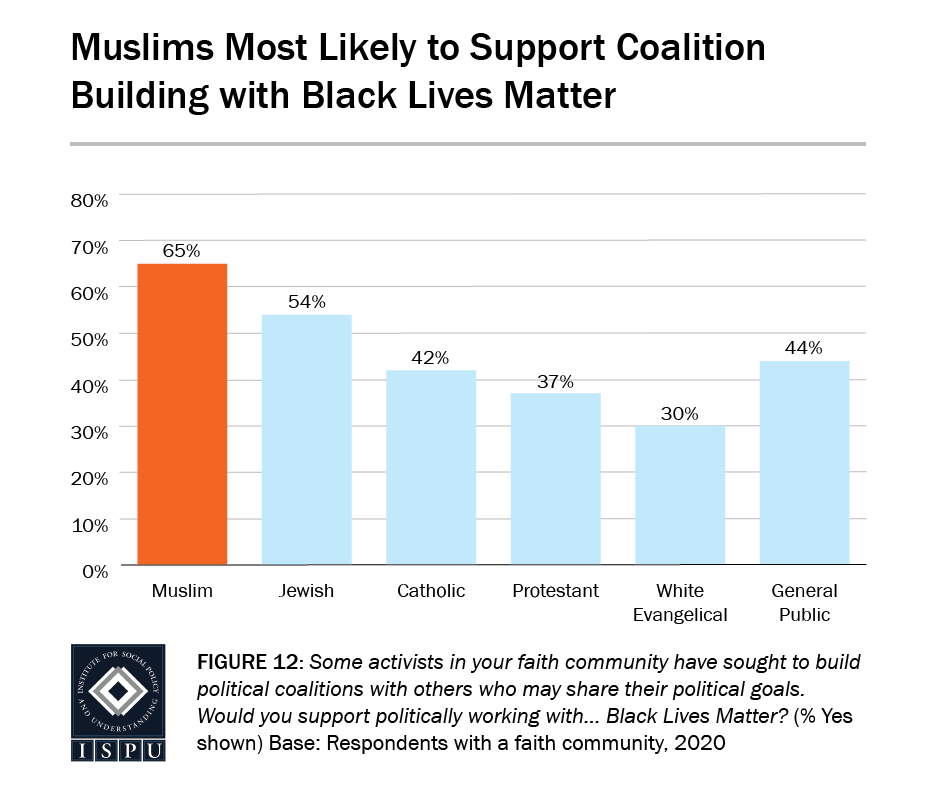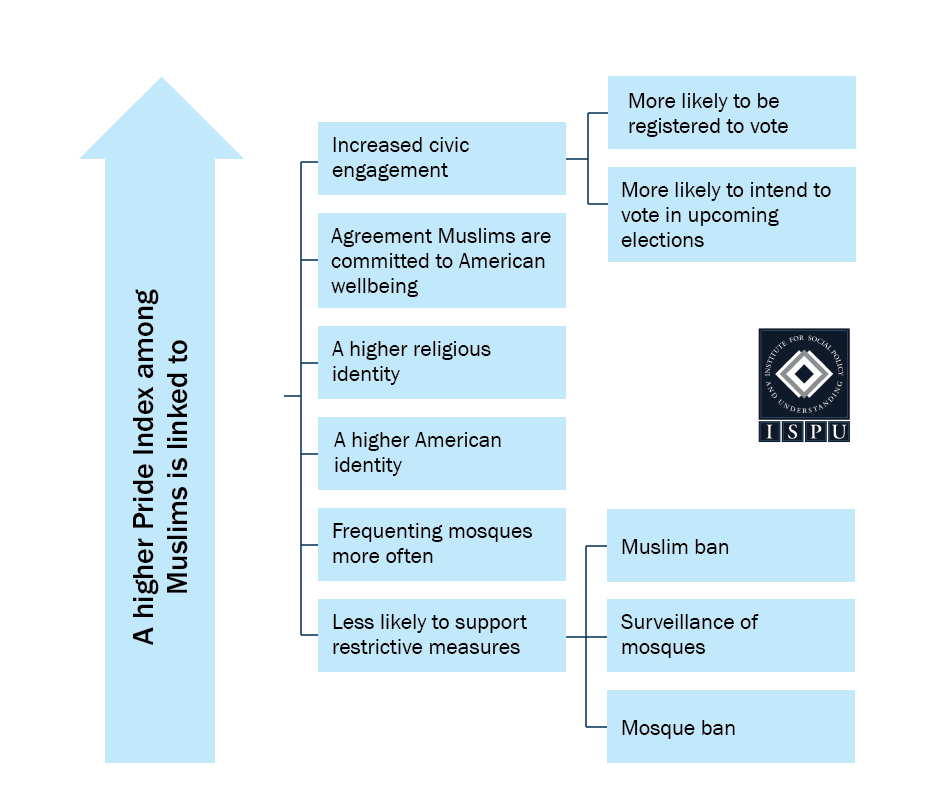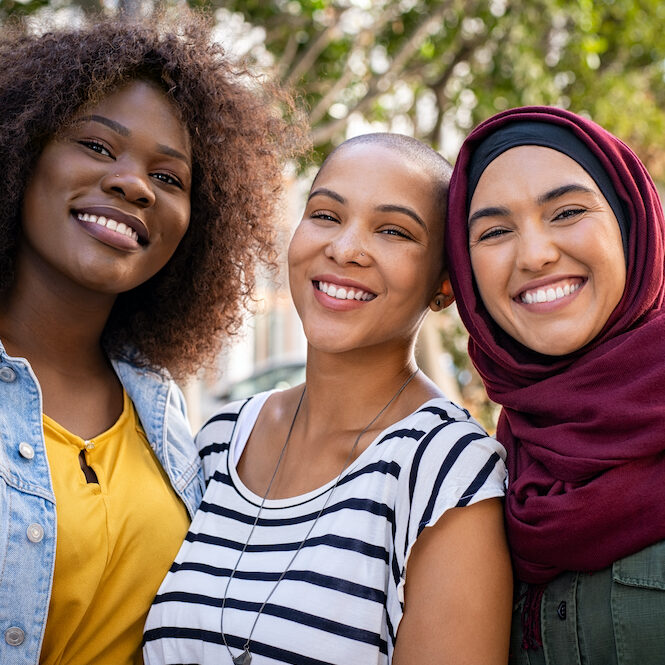
Six Facts Key to Understanding American Muslim Women
March 1, 2021 | BY DALIA MOGAHED
ISPU’s American Muslim Polls reveal a wealth of facts about Muslim women. This Women’s History Month, we’re sharing six facts discovered in our five years of surveying American Muslims that shed light on the unique experiences and attitudes of American women who are Muslim.
DOWNLOADS
MORE ANALYSES
American Muslim Policy Priorities
Not Immune: Some Muslims in America Internalize Islamophobia
Unwanted Sexual Advances from Faith Leaders Are Equally Prevalent Across Faith Groups
Muslims Profess More Private Religious Devotion, Less Public Religious Assertiveness
The Majority of Muslims Believe Poverty Is the Result of Bad Circumstances, Not Bad Character
1. Islamophobia, not Islam, harms Muslim women
One of the most salient stereotypes against American Muslims is that Muslims discriminate against women. However: All women in the U.S., regardless of religion, are equally likely to experience gender-based discrimination. But, Muslim women are more likely to experience religious (69%) and racial discrimination (75%) compared to women in the general public (26%, 40%).
2. Piety, identity are top reasons for choosing hijab
At 46%, Muslim women are the most likely out of all surveyed groups to always wear “a visible symbol that makes their faith identity known to others,” such as a headcovering or hijab.
The top reasons Muslim women report wearing a headcover are: piety or to please God (54%), so others know they’re Muslim (21%), and for modesty (12%). Just 1% of Muslim women said they wore a headcover because someone else required it of them.
3. Muslim women are less likely than Muslim men to be satisfied with the direction of the country
A lot has changed in the year since we fielded our 2020 American Muslim Poll in March 2020 during the presidential primaries and as schools and states began to shut down due to COVID-19.
At that point, when we asked how satisfied or dissatisfied respondents were with the way things are going in the United States, Muslims (37%) were more likely than the general public (27%) to report being satisfied with the direction of the country.
Muslim men (41%) were more likely than Muslim women (31%) to report this satisfaction, a gender divide on par with what we saw in the Jewish community (42%, 23%).
Source: American Muslim Poll 2020: Amid Pandemic and Protest
4. Muslim women are more likely than some Christians to have favorable views of feminism
Muslims (41%) are more likely than white Evangelicals (21%) and Protestants (28%) to have favorable views of feminists and are on par with Catholics (37%).
At 47%, Muslim women surpass the 37% of Muslim men who support feminism. The Islamophobic stereotype that Muslim women have been socialized into expecting and accepting a supposed second-class status doesn’t hold up under the weight of this evidence showing how Muslim women denounce gender discrimination inside and outside of their community.
Source: American Muslim Poll 2019: Predicting and Preventing Islamophobia
5. Muslim women are most likely to support the Black Lives Matter movement
In 2017, we found that Muslims were the most likely faith community to support the movement for Black Lives. This is especially true for Muslim women, where 75% support the Black Lives Matter movement, compared to 60% of Muslim men. We dug deeper and, in 2020, found that Muslims (65%) were also the most likely to favor their faith group building political coalitions with Black Lives Matter movements, compared to white Evangelicals (30%), Protestants (37%), Catholics (42%), Jews (54%), and the general public (44%).
At 74%, Muslim women were among the most likely to support this effort to build political coalitions, along with Muslim youth (72% of 18–29 year olds), Black Muslims (72%), and Arab Muslims (62%).
Source: American Muslim Poll 2017: Muslims at the Crossroads and American Muslim Poll 2020: Amid Pandemic and Protest
6. Despite facing discrimination, Muslim women overwhelmingly say their faith identity brings them pride and joy
87% of Muslim women say they are proud to be identified as a member of their faith community. Likewise, 87% of Muslim women say they see their faith identity as a source of happiness in their lives.
This pride exists in conjunction with the reality that many American Muslim women feel stigmatized. Muslim women are among the most likely groups measured to experience religious discrimination. In 2018, 69% of Muslim women reported experiencing discrimination compared to 57% of Muslim men. In 2020, Muslim women and men reported similar rates of religious discrimination.

Dalia Mogahed is the Director of Research at the Institute for Social Policy and Understanding, where she leads the organization’s pioneering research and thought leadership programs on American Muslims. Learn more about Dalia→




